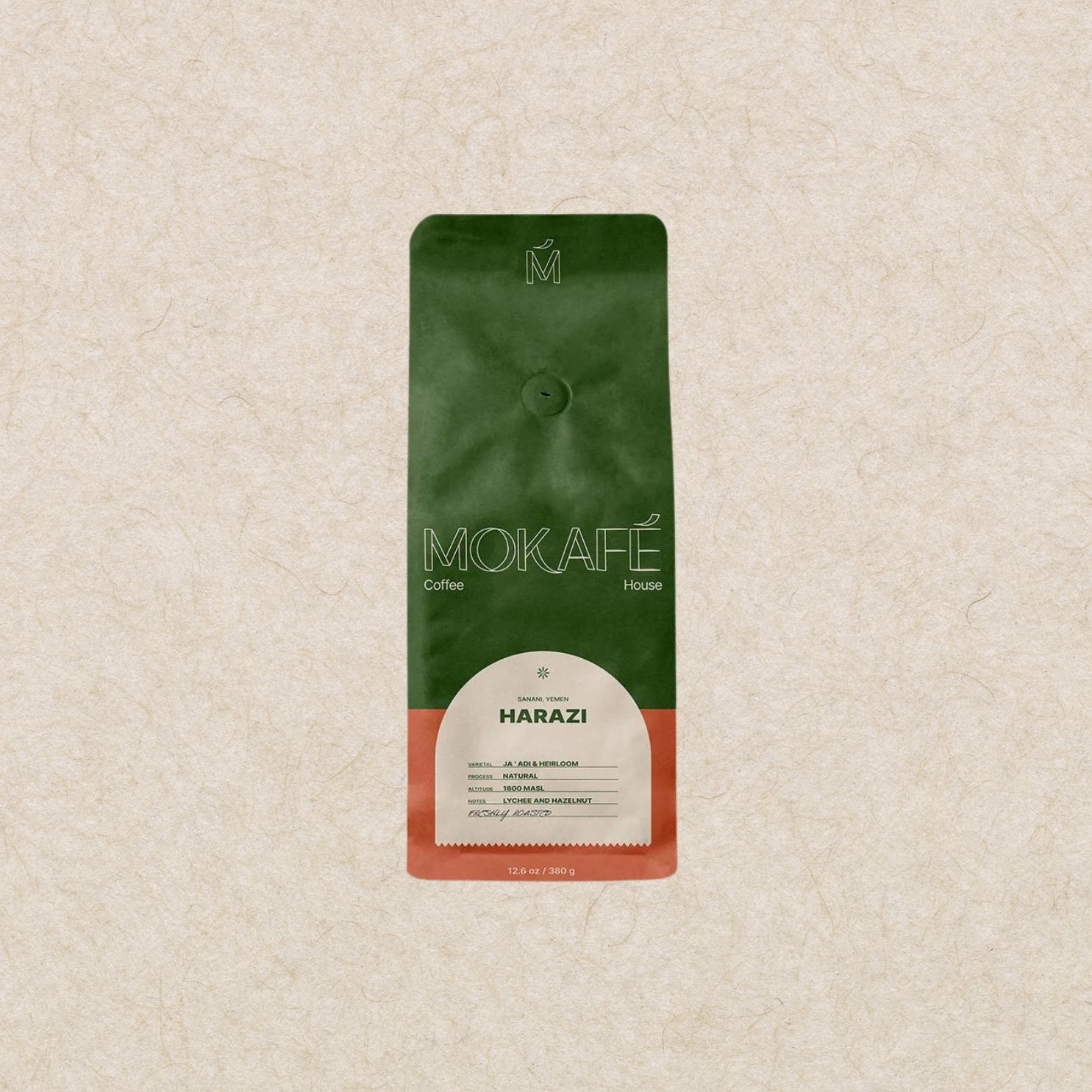Coffee is a beverage we cannot do without, and we have loved it in its many forms. Some like to drink it black, some with milk, and some with sugar, but have you ever heard of salt in coffee? While coffee enthusiasts worldwide indulge in various brewing techniques and flavor enhancements, the practice of adding salt to coffee remains relatively unexplored.
Surprisingly, this age-old method has found favor among experienced baristas who swear by its benefits.
Salt has been a part of coffee preparations across different cultures for many years. It's hailed as a potent tool to counteract bitterness and amplify the flavors of coffee. But why would someone consider introducing salt to coffee? Does it genuinely enhance the taste? This blog is dedicated to unraveling the enigmatic world of salting coffee, examining its scientific rationale, and assisting you in deciding whether this unconventional practice is worth a try.
Shop specialty coffee from Yemen and Guatemala at MOKAFÉ
The history of salt in the Coffee
Across diverse cultures, putting salt in coffee has been a longstanding tradition. There's a Turkish custom where a bride-to-be prepares salted coffee for her future husband and his family in an informal premarital ceremony. Meanwhile, "sea salt coffee" has become a trendy beverage in Taiwan, featuring salted milk foam atop an iced americano. In the northern regions of Scandinavia, people have been concocting their brewed coffee with salt for generations. Additionally, in coastal areas of Europe, brackish water, rich in salt content, finds its way into coffee-making. Thus, this intriguing practice of adding salt in coffee is not new and is deeply ingrained in the coffee-making customs of various regions across the globe.
What does adding salt to coffee do: The Science Behind salt with coffee
Adding salt to coffee might seem counterintuitive, but it can significantly impact its taste. The science of taste perception plays a crucial role here. We're all familiar with the basic flavors – sweet, sour, bitter, and salty – and how they interact with our taste buds. While coffee is naturally bitter, salt can help reduce the perceived bitterness, allowing other flavors to shine.
Bitterness in coffee is predominantly a result of two compounds other than caffeine. Chlorogenic acid lactones and phenylindanes contribute significantly to the bitterness. Interestingly, these compounds aren't intrinsic to green coffee beans but are generated during roasting. The level of bitterness is associated with the roast's darkness, with phenylindanes being more prominent in darker roasts. Moreover, bitterness can also be influenced by the coffee extraction process, where errors like over-brewing or using excessively hot water can lead to over-extraction and intensified bitterness.
Salt on coffee, notably sodium ions, engages salt receptors on our palate, softening the perception of bitterness and enhancing sweetness. Adding salt can boost the natural sweetness in coffee, a principle akin to salting the rim of a margarita glass to accentuate the sweetness of lime and tequila.
A Balancing Act: Salt and Acidity
Aside from reducing bitterness, the coffee salt ratio can also balance the
acidity in your coffee
. The acidity of the brew can influence its overall flavor profile. While some might enjoy an acidic coffee's bright, tangy notes, others prefer a mellower taste. Salt can help soften the acidity, creating a more balanced and approachable flavor.
How to add salt in your coffee
Adding salt to coffee is a nuanced practice, often described in terms of a "pinch," "dash," or "touch." When it comes to adding salt in coffee it's a case of less is more, with baristas exercising restraint in this endeavor. There are two main approaches:
1.
some add a touch of salt directly into the coffee grounds before brewing, allowing it to dissolve during the process.
2.
Others prefer to introduce a bit of salt right after the coffee is brewed.
However, the key is to strike a balance; too much salt can overpower the coffee's natural flavors. When to add salt and how much to use are questions that stir some debate. While some Baristas suggest adding it to the grounds pre-brew, others, like
Alvaro Rosales Merida
from
MOKAFÈ
, suggest a post-brew addition, providing better control over dosage.
Who Should Try Salted Coffee?
Salt in coffee is not for everyone. People who enjoy the bold bitterness of black coffee might not feel the need to add salt. However, salt could be an intriguing option if you've been looking to reduce the bitterness and acidity in your coffee without resorting to cream and sugar.
It's also important to note that your coffee type matters. High-quality,
freshly roasted beans
tend to have a smoother and less bitter taste, making them an excellent choice for salted coffee experiments. On the other hand, if you're brewing with lower-quality beans or over-roasted coffee, salt might be less effective in improving the flavor.
The Verdict: Does Salt in Coffee Really Taste Better?
Does adding salt to coffee actually make it taste better? The answer depends on your personal preferences. Salted coffee can indeed reduce bitterness, balance acidity, and offer a smoother, more mellow taste. For some, this is a game-changer that elevates their coffee experience.
However, it's essential to approach salted coffee with an open mind and a willingness to experiment. Your ideal salt-to-coffee ratio may differ from someone else's, so it's all about finding the right balance for your taste buds. Salted coffee works better with certain coffee beans and roast profiles than others.
Conclusion
Coffee enthusiasts continue to explore innovative ways to enhance their coffee experience. Salt in coffee may seem unconventional, but it's a fascinating approach to improving the flavors of your brew. With the science of taste perception on its side, salt can help reduce bitterness, balance acidity, and provide a smoother, more approachable coffee experience. If you're one of those who love to experiment, you must give it a try. After all, the best coffee is the one that brings you the most joy, and sometimes, you need to take it with a pinch of salt literally.
Whether a coffee purist or a flavor adventurer, adding salt to coffee opens up new possibilities in your quest for the perfect brew.
References
More From Jorge Armando Ciciliani
-
Shop:
Buy Coffee Beans Online
-
Flat White vs. Cappuccino
-
Latte vs Mocha
-
Macchiato vs. Latte
-
Coffee drinks types
-
Cappuccino vs. Latte vs. Macchiato vs. Mocha vs. Americano vs. Espresso
About The Author: Jorge Armando Ciciliani

Jorge is a seasoned coffee professional with a lifelong passion for all things coffee. For over a decade, he has fervently immersed himself in the world of coffee, mastering its preparation, understanding its societal impact, and uncovering its cultural significance. Starting as a barista at the young age of 15 and later managing a coffee roastery, this journey led him to work as a quality control manager for a green coffee importer.
Traveling across countries in Central and North America, Jorge has explored various coffee traditions and honed his skills through Specialty Coffee Association courses. As a QC Cupping coffee connoisseur and sensory skills enthusiast, Jorge is a true expert in the art of brewing and savoring the perfect cup. Consider him your trusted Fika expert.
Follow:
,




